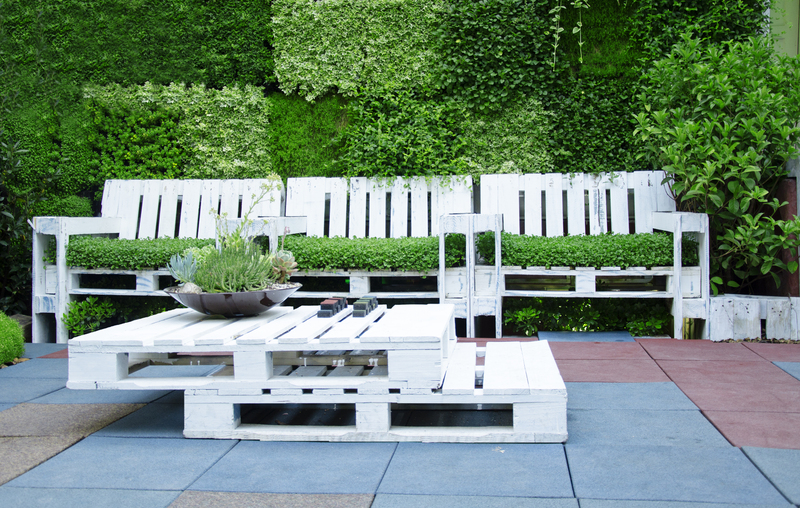Achieve Inner Peace: Stress Relief Through De-cluttering
In today's fast-paced world, stress is a common experience. Many people endlessly search for ways to regain a sense of calm and harmony in their daily lives. One surprisingly effective approach is the process of de-cluttering. By removing physical chaos from our surroundings, we can cultivate an environment that fosters profound inner peace and contributes dramatically to our overall well-being.
Why De-cluttering is Essential for Inner Calm
It's easy to underestimate the impact that our physical environment has on our mental state. When our living or workspaces are crowded with unnecessary items, burdensome collections, or perpetual untidiness, our minds can reflect this chaos. Adopting strategic de-cluttering methods is more than just a cleaning exercise--it's a vital route to stress relief and renewed tranquility.
Understanding the Mind-Environment Connection
- Visual Calmness: Uncluttered spaces reduce visual noise, allowing your brain to focus and relax.
- Enhanced Productivity: Organized environments support clearer thinking and better decision-making.
- Reduced Anxiety: Removing disorder can lower stress hormones and foster a peaceful mood.
Numerous studies acknowledge that organized, minimalist spaces have a tangible effect on our psychological well-being, paving the way for inner tranquility.

The Psychological Benefits of De-cluttering
De-cluttering is about more than just sorting through personal belongings. It's an opportunity to reflect on what truly serves us and what no longer contributes to our happiness. Here's how de-cluttering nurtures a peaceful state of mind and delivers lasting stress relief:
1. Increased Focus and Clarity
When every item in your space has a purpose, your ability to concentrate and accomplish tasks dramatically improves. Mental clarity arises from a tidy backdrop, making problem-solving and creativity easier.
2. Emotional Release
Letting go of excess can be a symbolic act of releasing emotional baggage. Many people find that de-cluttering helps them process feelings of guilt, attachment, or indecision, opening their lives to new possibilities.
3. Enhanced Sense of Accomplishment
Successfully organizing any area provides a boost in self-confidence and satisfaction. This sense of achievement can increase overall happiness and reduce stress levels over time.
4. Controlled Environment
Clutter can make us feel out of control. By managing our physical space, we regain a sense of agency--a key factor in mitigating stress and fostering inner calm.
Practical Steps: How to De-clutter Your Life for Stress Relief
Ready to begin your journey toward a more peaceful life? Here are expert-recommended, actionable tips to help you de-clutter for inner peace and stress relief.
1. Start Small, Think Big
- Tackle a single drawer or shelf before attempting larger spaces.
- Small victories foster motivation and build momentum for bigger projects.
2. Apply the Three-Box Method
- Keep: Items you truly use and value.
- Donate: Belongings in good condition that could help others.
- Discard: Broken, outdated, or unnecessary items.
Put each item in your space into one of these three categories to streamline decisions without getting overwhelmed.
3. Use the 12-Month Rule
- If you haven't used or worn something in a year, it's likely you don't need it.
- This simple rule can drastically reduce unnecessary possession buildup.
4. Create Dedicated Zones
Assign specific areas for certain activities, such as reading, working, or relaxing. Having designated spaces keeps items organized and clutter-free.
5. Practice Mindful Purchasing
- Before buying something new, ask if it will genuinely add value to your life.
- Buy intentionally, not impulsively, to keep clutter in check.
6. Develop a Routine
Schedule regular de-cluttering sessions--weekly, monthly, or seasonally. Habits are easier to maintain than one-off efforts.
De-cluttering Techniques: Popular Approaches for Lasting Impact
There are several proven de-cluttering strategies that can make the process easier and more effective. Consider adopting one (or more) of the following:
The KonMari Method
Created by Marie Kondo, this approach encourages you to only keep items that "spark joy." The focus is on emotional connection and gratitude. Tidy by category, not by room, and let go of anything that no longer resonates with your vision of inner peace.
The Minimalist Challenge
This process involves removing one item on the first day of the month, two on the second, and so forth. By the end of 30 days, you'll have removed nearly 500 items!
One-In, One-Out Rule
For every new item you bring into your space, remove another. This keeps the balance and helps prevent accumulation.
De-cluttering for Mental Clarity at Work
Clutter is not limited to home environments. Many people experience stress from disorganization in their workspaces--whether at the office or working remotely. Here's how to create a calming, productive work area:
- Digitally organize files and emails to reduce digital clutter.
- Use trays or containers to keep supplies neatly arranged.
- Limit personal items on your desk to only essentials or those with positive significance.
- Set aside 5 minutes at the end of each day to tidy your workspace.
By investing a small amount of time each day to maintain a clear work area, you'll experience increased focus, productivity, and reduced workplace-related stress.
How De-cluttering Supports Emotional & Physical Wellness
A harmonious, clutter-free environment does more than alleviate stress; it can greatly improve both your emotional and physical health.
De-cluttering Reduces Allergens and Health Risks
Piles of unused clothes, books, or miscellaneous objects can collect dust, mold, and other irritants. Regular organizing and cleaning ensures your living environment supports optimal physical health.
Boosts Motivation and Creativity
A peaceful space often acts as a fertile ground for creative ideas and inspiration, enhancing both personal and professional aspirations. You may find yourself more motivated and open to new opportunities as you lighten your surroundings.
Promotes Restful Sleep
A clutter-free bedroom, in particular, can greatly improve your quality of sleep. With less visual distraction, your mind is more likely to unwind, supporting deep and restorative slumber.
Mindfulness and De-cluttering: A Powerful Combination
Achieving inner peace isn't just about physical tidiness--it's about tuning into your own needs and intentions. Mindfulness can amplify the benefits of de-cluttering, making the process more intentional and rewarding.
Incorporate Mindful Moments in Your Routine
- As you assess items, ask yourself if they align with your goals and values.
- Pause to appreciate the items you choose to keep and the space you're creating.
- Release possessions with gratitude for their service and lessons.
This mindful approach transforms de-cluttering from a chore into a healing ritual, fostering a deep sense of inner peace and self-connection.
Overcoming Barriers to De-cluttering
While the benefits of de-cluttering for stress relief and inner calm are well-documented, it's normal to encounter emotional or practical challenges during the process. Here's how to address some common obstacles:
1. Sentimental Attachments
Objects with emotional significance can be the hardest to part with. Consider keeping only those items that genuinely evoke positive memories. Photographing cherished items can also help you let go while preserving the memory.
2. Overwhelm and Procrastination
If the prospect of de-cluttering your entire home feels daunting, remember to start small. Focus on one area at a time, use music or an audiobook to make the process enjoyable, and celebrate each accomplishment.
3. Fear of Needing Items Later
It's easy to worry about discarding something you might someday need. Store such items in a box and revisit after six months; if you haven't needed them, you can safely let go.
Maintaining a Clutter-Free Life Moving Forward
Achieving a peaceful living space is a continuous process, not a one-time event. To sustain your newfound inner harmony, practice these habits:
- Regular Assessments: Schedule regular check-ins to manage new accumulation.
- Conscious Consumption: Buy less, choose quality over quantity, and seek multi-purpose items.
- Share and Donate: Give unused items new life by donating to charity or sharing with friends.
- Enjoy the Benefits: Take time to appreciate your serene environment and the calm it brings.

FAQs: De-cluttering for Stress Relief and Inner Peace
- Q: How often should I de-clutter?
A: The frequency varies depending on your lifestyle, but most experts recommend small, regular efforts (e.g., monthly or seasonally) over major annual undertakings. - Q: Will de-cluttering really help with stress?
A: Yes, research shows that organized spaces can lower cortisol levels (a key stress hormone) and promote better mental health. - Q: Can children benefit from de-cluttering?
A: Absolutely! Teaching kids to de-clutter fosters responsibility and helps them create lifelong organizational habits. - Q: What if I live with someone who struggles with clutter?
A: Start with your own belongings and lead by example. Open, non-judgmental communication encourages others to adopt positive habits.
Conclusion: The Power of De-cluttering for Peaceful Living
De-cluttering is more than a trend--it's a transformative practice that directly supports stress relief and the achievement of inner peace. By consciously editing your environment, you pave the way for heightened focus, emotional resilience, and a tranquil mind.
Whether you begin with a single drawer or embark on a home-wide overhaul, every step deserves to be celebrated. Remember, an organized, serene space is a reflection of the harmony within.
Start your journey toward inner peace today. Let the process of de-cluttering bring lasting serenity, clarity, and joy into your life.